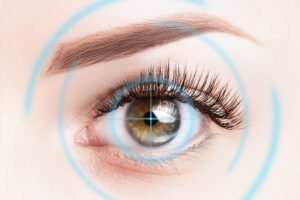When it comes to your health, there are many terms that you might hear that scare you, because you really aren’t sure what these words mean. Glaucoma is one of those words. When a doctor tells you that you might have glaucoma, you may have a lot of questions. Hopefully this will answer some of the questions you might end up having.
WHAT IS GLAUCOMA
To some it might be a little difficult to accurately define glaucoma, but here is the brief explanation of what the disease is. Glaucoma isn’t a single disease, it’s actually a collection of different diseases that targets and damages the eye’s optic nerve. This is the nerve that sends the images from your retina to the brain itself. The damage itself will start to put small to large blind spots in a person’s field of vision. The majority of the people are unaware of these blind spots, until unfortunately, most of all the damage has already been done to the optic nerve.
WHAT GLAUCOMA CAUSES
Not only does glaucoma cause eventual blindness, glaucoma is actually the leading cause of blindness anywhere in the world. Over time, before blindness occurs, you might notice pain in the eye itself. This stems from the pressure building up, and being forced upon the optic nerve.
WHAT CAUSES GLAUCOMA
Unfortunately, even in the medical world, the exact cause of glaucoma is still relatively unknown. The best anyone has been able to figure out, is that a decrease in blood flow to the eye and the optic nerve are the most notable causes of glaucoma. Beyond that, the only thing experts have been able to ascertain are there are multiple forms of glaucoma. These forms include open-angle glaucoma, angle-closure glaucoma, exfoliation syndrome, and pigmentary glaucoma.
SIGNS OF GLAUCOMA
The signs of glaucoma are wide and varying. One early sign could be the trouble when trying to adjust your vision to a darker room. Some people have noticed difficulty when focusing from nearer objects to further objects. The occurrence of double vision is also a common sign of the onset of glaucoma. Two other signs can include the eyes being excessively watery, dry, or itchy eyes. I know these last two kind of contradict each other, but they’re something you need to be aware of.
What it all boils down to is this; these glaucoma symptoms don’t necessarily mean you in fact do have glaucoma. But if you are displaying any of these symptoms, it would be wise to get it.
Contact Us
If you have more questions about LASIK procedures, get in touch with us.
Related Blogs

Timing is Everything: When to Consider LASIK After Nursing for Optimal Results
Timing is everything when considering LASIK eye surgery after nursing, and understanding the optimal period for this procedure is vital for both mother and baby.

Cataract Surgery: Restoring Clarity and Confidence
Cataract surgery is a transformative procedure that offers a new lease on clear vision and renewed confidence. As cataracts cloud the eye’s lens, causing blurred

Intralase LASIK Explained: What to Expect Before, During, and After the Procedure
Intralase LASIK is a cutting-edge procedure that offers a safe, effective, and precise way to enhance vision compared to traditional LASIK methods. Understanding what to
